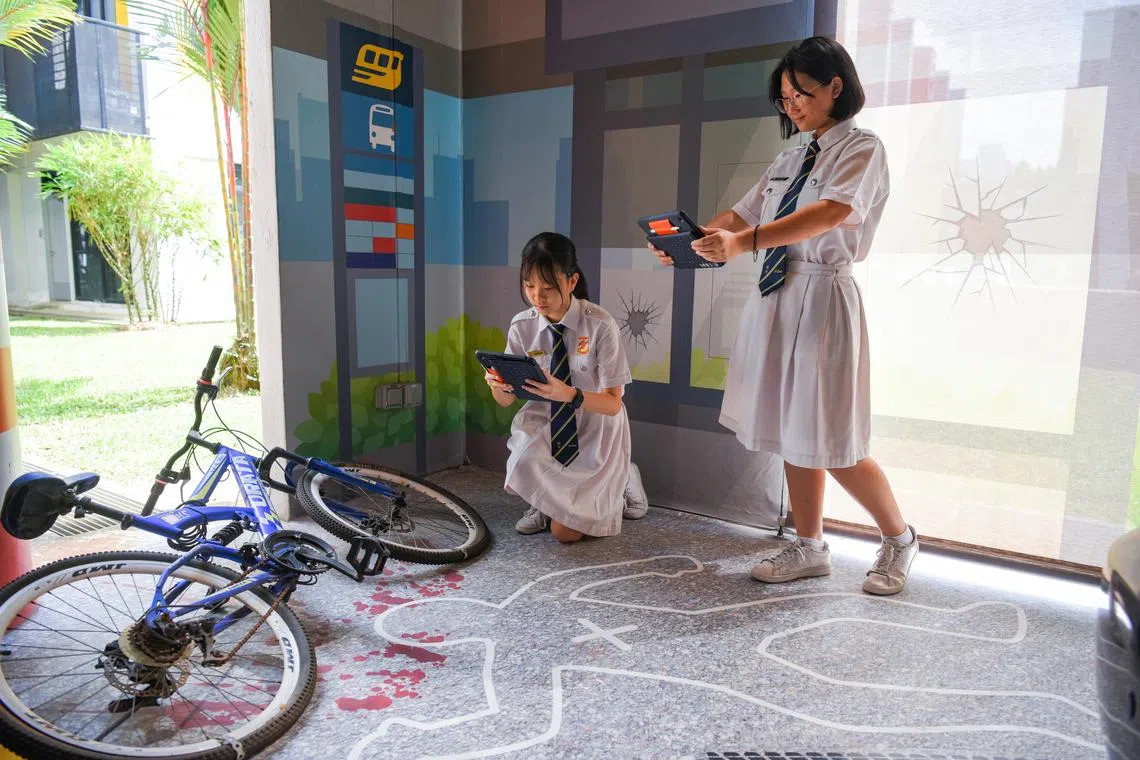8,000 direct school admission places, and 4,400 students admitted in 2023: Chan Chun Sing
Sign up now: Get ST's newsletters delivered to your inbox

There were a record 38,000 Direct School Admission applications from 14,500 pupils in 2023. Those who opt for Fuhua Secondary School have the option of enrolling through the talent area of forensic science.
PHOTO: ST FILE
SINGAPORE - There are more Direct School Admission (DSA) places than eligible pupils, said Education Minister Chan Chun Sing on Feb 5.
The Ministry of Education (MOE) caters DSA places for about 20 per cent of each cohort
“There are sufficient DSA places for eligible students to enrol across the school landscape... There is no need to expand the number of DSA places at this point,” he said in a written reply on Feb 5 to a parliamentary question from Mr Darryl David (Ang Mo Kio GRC) on talent areas, the number of places and pupils accepted in the scheme.
The DSA scheme, which was introduced to recognise pupils’ achievements in non-academic areas
Mr Chan said the number of pupils admitted to secondary schools through this scheme has gone up from about 3,500 in 2019 to about 4,400 in 2023. This increase was from about 9 per cent to about 11 per cent of the Primary 6 cohort.
There were a record 38,000 DSA applications from 14,500 pupils in 2023.
On the breakdown of talent categories, Mr Chan said around one-third of applications were for sports and games, and a quarter for science, technology, engineering and mathematics.
The remaining applications were across areas such as leadership and uniformed groups, performing arts, entrepreneurship and innovation, languages and humanities, and visual arts, design and media.
The DSA scheme, which was introduced in 2004, had previously been criticised for deviating from its original intent of recognising pupils’ achievements in areas beyond grades, instead giving academically bright pupils early entry to choice secondary schools.
MOE has since taken steps to move the focus of the scheme away from general academic abilities, and focus instead on identifying pupils with specific talents. For instance, it stopped the practice of requiring DSA applicants to take general academic ability tests.
MOE also expanded the DSA intake of each secondary school cohort to up to 20 per cent.
Schools can use a range of assessment tools, such as interviews and auditions, to admit pupils under the DSA. Pupils may be admitted via the scheme if their specific talents are a good fit for the schools’ niche programmes, such as sports, the arts and specific academic strengths like mathematics and languages.
Mr David also asked whether the DSA talent areas could be expanded to allow more diversity in admissions.
Mr Chan said: “Over the years, schools have expanded their DSA selection processes to recognise diverse strengths, and take into consideration potential, interest, character, resilience and drive.
“MOE will continue to work with schools to ensure that the DSA talent categories are sufficiently varied to cater to the diverse interests, talents and strengths of our students.”


